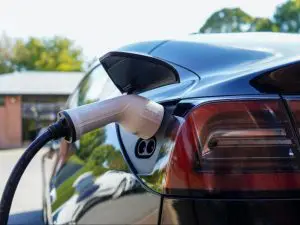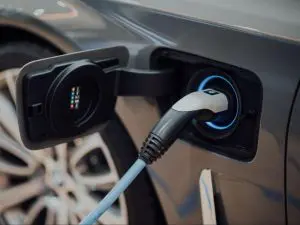As the popularity of electric vehicles (EVs) continues to grow, so does the need for reliable and efficient EV chargers. Whether you have a personal charger installed at home or manage a commercial charging station, it’s essential to maintain the equipment properly and know how to troubleshoot any issues that may arise. Proper maintenance extends the life of your EV charger and ensures that it operates safely and efficiently. Here’s a guide on how to maintain and troubleshoot your EV charger effectively.
Regular Maintenance of Your EV Charger
Proper maintenance of your EV charger can prevent common issues and ensure that it operates efficiently for years to come. Here are the key maintenance tasks you should perform regularly:
a. Inspect the Charging Cable and Plug
The charging cable and plug are critical components of the EV charger, and they can wear out over time. Make sure to:
- Check for visible wear and tear: Look for any cracks, frayed wires, or damage to the insulation. Damaged cables can lead to electrical hazards, so it’s important to replace them if they show signs of wear.
- Inspect the plug: Ensure that the plug is free of dirt, grime, or any foreign objects that could interfere with its connection to the vehicle’s charging port. Clean the plug with a dry cloth if necessary.
- Avoid kinking or tangling: Keep the charging cable neatly coiled and store it in a cool, dry place to prevent unnecessary stress on the wires.
b. Clean the Charging Unit
Dirt, dust, and debris can accumulate on the charger’s exterior, especially if it’s installed outdoors. To maintain its efficiency:
- Wipe down the exterior: Use a damp cloth to clean the unit’s casing. Avoid using harsh chemicals or abrasive materials that could damage the surface.
- Check the ventilation: Some EV chargers have ventilation systems to prevent overheating. Ensure that vents are clear of debris, dust, or leaves to maintain proper airflow.
c. Monitor the Charging Performance
Pay attention to how your EV charger performs over time. If you notice a decrease in charging speed or efficiency, it could indicate a problem that needs to be addressed. Regular monitoring of charging sessions helps you spot potential issues before they become serious.
d. Ensure Proper Grounding
For safety reasons, your EV charger should always be properly grounded. If the grounding system is compromised, it can lead to electrical hazards such as shocks or equipment malfunctions. If you suspect grounding issues, have an electrician inspect the installation to ensure compliance with electrical safety standards.
e. Check Software Updates
Some modern EV chargers come equipped with smart features and may require periodic software updates to improve performance and security. Make sure your charger’s firmware is up to date by checking the manufacturer’s website or app for available updates.
Common Issues and Troubleshooting Tips
Even with regular maintenance, your EV charger may occasionally encounter issues. Knowing how to troubleshoot common problems can save you time and money. Qmerit has provided us with a list of the most common EV charger issues and how to resolve them:
a. Charger Won’t Power On
If your EV charger is not powering on or seems to be dead, the problem could stem from a variety of sources.
- Check the power supply: Ensure that the charger is plugged in securely and that the circuit breaker has not been tripped. If it has, reset the breaker and try again.
- Inspect the power cable: Look for any visible damage to the power cord that could be interrupting the flow of electricity. If the cable is damaged, replace it immediately.
- Check the outlet or wiring: If the charger is not receiving power, it could be due to an issue with the electrical outlet or wiring. In this case, it’s best to consult a licensed electrician to diagnose and fix the issue.
b. Slow or Inconsistent Charging
If your EV charger is taking longer than usual to charge your vehicle, or if the charging speed fluctuates, there may be several potential causes:
- Check the power supply: Ensure that your charger is connected to a reliable power source. Inconsistent power delivery can cause fluctuations in charging speed.
- Verify charging settings: Some smart chargers allow you to customize charging speed or time settings. Double-check that these settings are configured correctly.
- Inspect the charging cable: A damaged or worn-out charging cable can reduce efficiency. Replace the cable if you notice any visible damage.
- Monitor temperature: Charging performance may slow down if the charger or vehicle overheats. Make sure the charger is installed in a well-ventilated area and avoid charging during extreme heat.
c. Charger Disconnects During Charging
If your EV charger disconnects unexpectedly during charging sessions, it can be frustrating and inconvenient. To troubleshoot this issue:
- Check for loose connections: Ensure that the charging cable is securely plugged into both the charger and the vehicle. A loose connection can cause the charger to stop working mid-session.
- Inspect the charging port: Dirt or debris in the vehicle’s charging port can interrupt the connection. Clean the port gently with a soft, dry cloth.
- Check for overheating: Some EV chargers are designed to shut off automatically if they detect overheating. If this happens, allow the unit to cool down before resuming the charging session.
d. Error Codes on Smart Chargers
Many modern EV chargers display error codes when something goes wrong. These codes can provide valuable insight into the nature of the problem.
- Consult the user manual: Error codes vary by manufacturer, so consult your charger’s user manual for a list of codes and their meanings.
- Reset the charger: In some cases, simply resetting the charger can resolve the issue. Unplug the charger from the power source, wait a few seconds, and then plug it back in.
- Contact customer support: If the error code persists or indicates a more serious issue, contact the manufacturer’s customer support team for further assistance.
e. No Communication Between Vehicle and Charger
If your vehicle isn’t recognizing the EV charger, or if the charging session won’t start, there may be a communication issue between the charger and the vehicle.
- Restart the charger and vehicle: Turning off both the charger and the vehicle’s charging system and then restarting them can sometimes resolve communication issues.
- Check compatibility: Ensure that the charger is compatible with your vehicle’s charging port and protocol. Some chargers may require specific adapters to work with certain EV models.
- Inspect the charging cable and port: Look for any visible damage or debris in both the cable and the vehicle’s charging port that could be blocking the connection.
When to Call a Professional
While many minor issues can be resolved with simple troubleshooting, there are times when you’ll need to call a professional for help. If you encounter any of the following, it’s best to seek expert assistance:
- Electrical problems: If you suspect wiring or electrical issues with your EV charger, do not attempt to fix them yourself. Electrical work can be dangerous, so consult a licensed electrician.
- Persistent or complex errors: If error codes continue to appear despite troubleshooting efforts, contact the charger’s manufacturer for technical support or repairs.
- Damaged components: If you notice significant damage to any part of the charger, such as the casing, power cable, or internal components, it’s best to have a professional evaluate and repair the unit.
Conclusion
Maintaining and troubleshooting your EV charger is key to ensuring that it operates efficiently and safely. By performing regular maintenance tasks like inspecting the charging cable, cleaning the unit, and monitoring performance, you can extend the lifespan of your charger and minimize downtime. When issues arise, knowing how to troubleshoot common problems can save time and prevent more serious malfunctions. However, when in doubt, it’s always best to consult a professional to avoid potential risks. Proper care of your EV charger will ensure that your vehicle is always ready to go, while also protecting your investment in clean and sustainable transportation.



